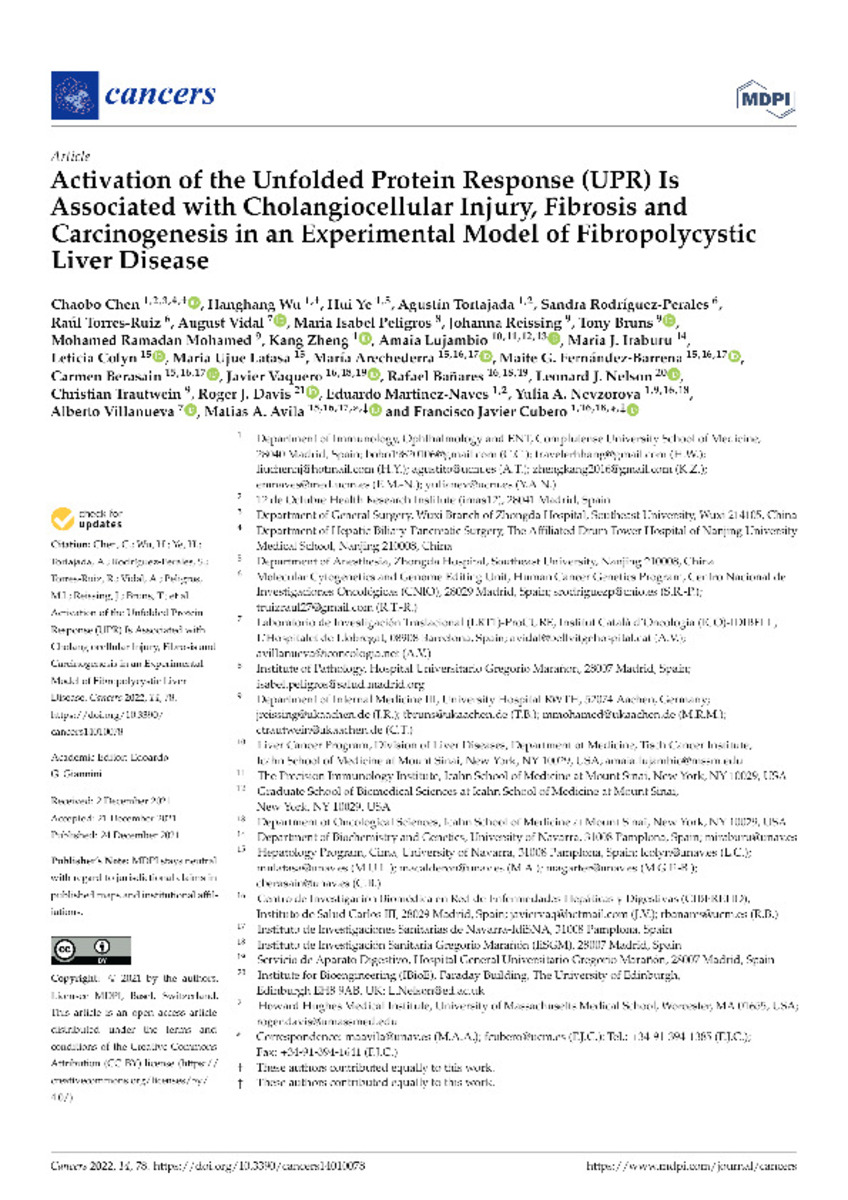Activation of the unfolded protein response (UPR) is associated with cholangiocellular injury, fibrosis and carcinogenesis in an experimental model of fibropolycystic liver disease
Keywords:
c-Jun N-terminal kinases (JNK)
Fibropolycystic liver disease
Cholangiocarcinoma (CCA)
Endoplasmic reticulum (ER)
Stressthioacetamide (TAA)
CM272
Note:
This article is an open access article distributed under the terms and conditions of the Creative Commons Attribution (CC BY) license (https://creativecommons.org/licenses/by/4.0/).
Citation:
Chen, C. B.; Wu, H. H.; Ye, H.; et al. "Activation of the unfolded protein response (UPR) is associated with cholangiocellular injury, fibrosis and carcinogenesis in an experimental model of fibropolycystic liver disease". Cancers. 14 (1), 2022, 78
Statistics and impact
0 citas en

Items in Dadun are protected by copyright, with all rights reserved, unless otherwise indicated.











